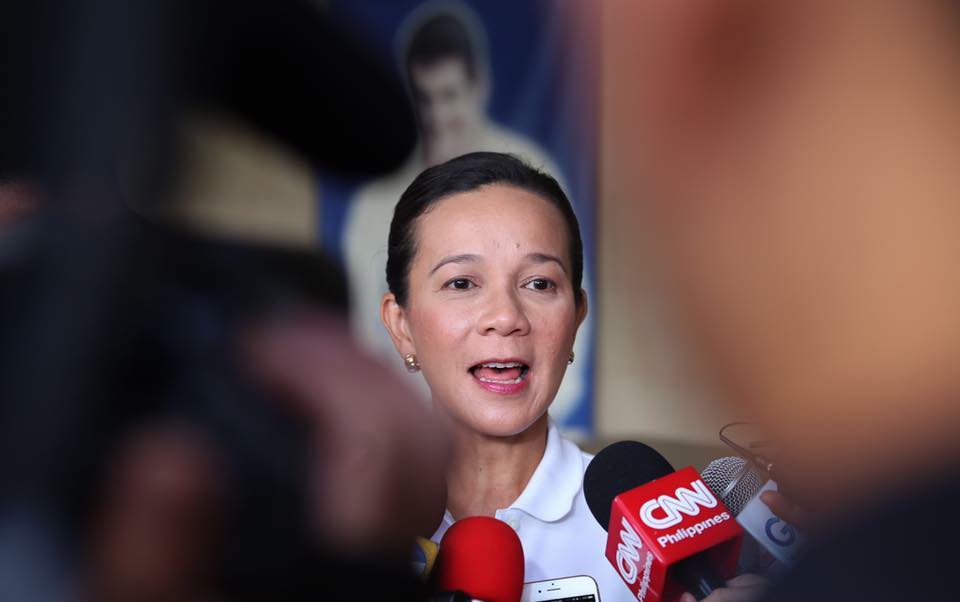
MANILA – Senators commended on Sunday President Rodrigo Duterte for signing a landmark Executive Order on Freedom of Information for the executive branch of the government.
“Let me say in the first place that we thank the President for starting this at least in the executive branch. This is already indeed a milestone,” Senator Grace Poe said in a cable ANC television interview.
Poe, a presidential candidate in the last May 9 election, vowed to push for an actual FOI law that will cover all branches of government, including legislative.
“There are a lot of things that we need to continue with regard to the FOI in other branches of government but we wait with much anticipate that full implementation in the executive branch,” Poe said.
As chairperson of the Senate committee on mass media and information, Poe co-authored and sponsored the FOI bill that was passed by the Senate in the 16th Congress.
The FOI bill, however, did not reach Malacanang after the House of Representatives failed to pass its own version, marking the three decades of failed effort of the legislative branch to pass FOI law.
Senator Paolo Benigno ‘Bam’ Aquino IV said the FOI in the executive branche would be a welcome development in the fight for transparency and good governance.
“We believe wholeheartedly that this Executive Order will aid in the fight against corruption,” Aquino said.
“A number of us supported the FOI in the previous Congress, but it did not come to fruition. This is a bold step in the right direction, and hopefully, the legislature can follow the President’s lead and institutionalize this into a law as well,” he added.
Senator Francis ‘Koko’ Pangilinan described the EO as landmark but agreed with Poe that there is still a need for FOI legislation “so that we can ensure transparency at all levels of the bureaucracy.”
“We commend President Duterte on his commitment to uphold the constitutional right of our people to information through his Executive Order. It is a first step on our vision of a more transparent government,” Pangilinan said.
Senator Ralph Recto said the FOI order signed by President Duterte should cut red tape in public offices and lead to “shorter periods and simpler processes” in accessing government services.
“There’s one important benchmark by which this FOI order should be measured, on how fast government permits can be secured,” Recto said.
“Clear, concise, cheaper way of getting government documents like passports and licenses,” Recto added.
Recto recalled that the FOI bill passed by the Senate in the past Congress clearly mandated offices “to describe frontline services they deliver and the procedure and length of time by which they may be availed of.”
“Delays arise from lack of information. This commendable FOI order by President Digong should light the bureaucratic maze,” Recto said.
Recto said it is not enough that the public is allowed access to public documents – “it is also important that documents are written in a language they can easily understand.”
The Senate version of the FOI bill, Recto said, “called for the use of plain language in official documents and communication and their translation into the vernacular.”
“It is one thing to get documents. It is another to make documents self-explanatory and easy-to-comprehend,” he said.
So that official documents can be available online, Recto said the newly-formed Department of Information and Communications Technology (DICT) “should spearhead the establishment of an infrastructure that would place public records on ICT platforms.”
The DICT has a big role to play in carrying out the provisions of FOI, Recto stressed.